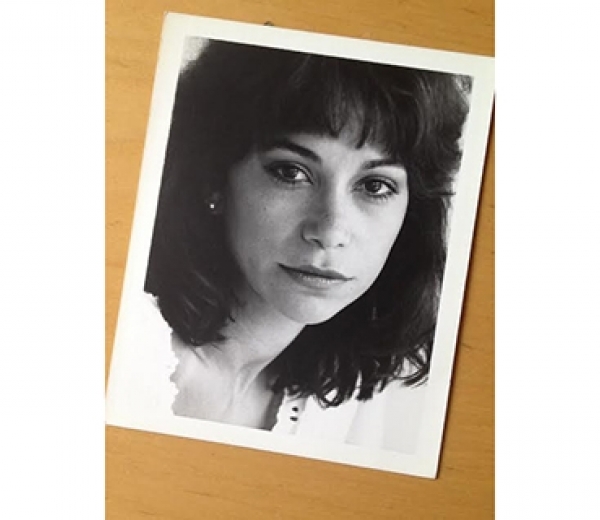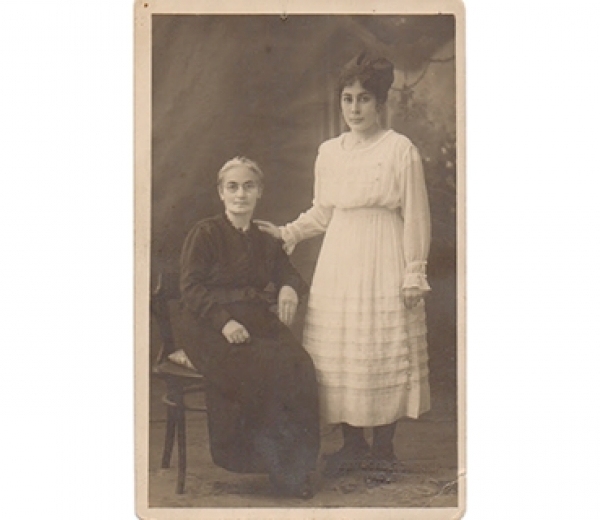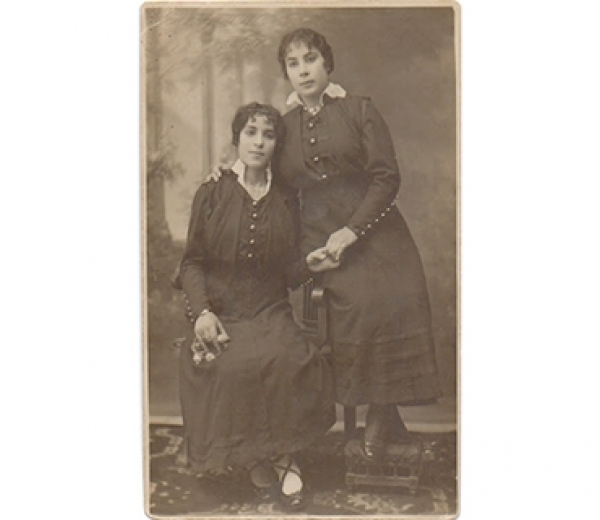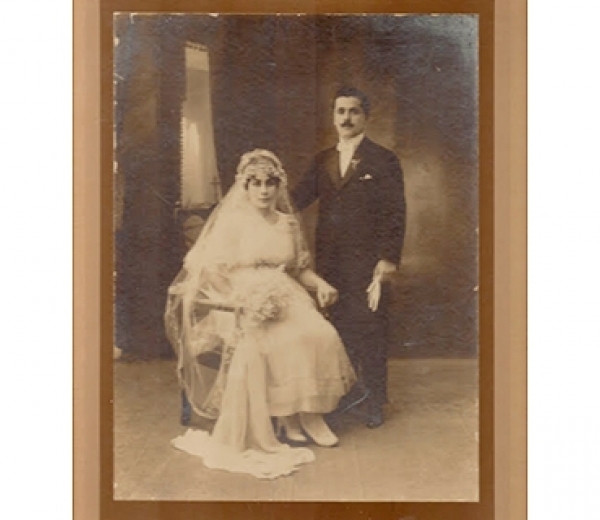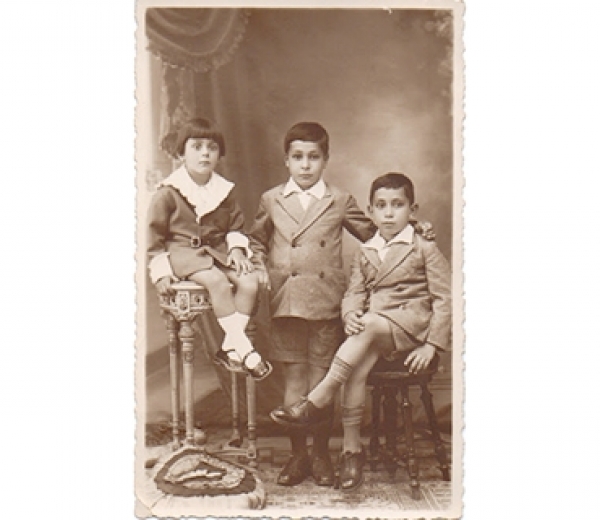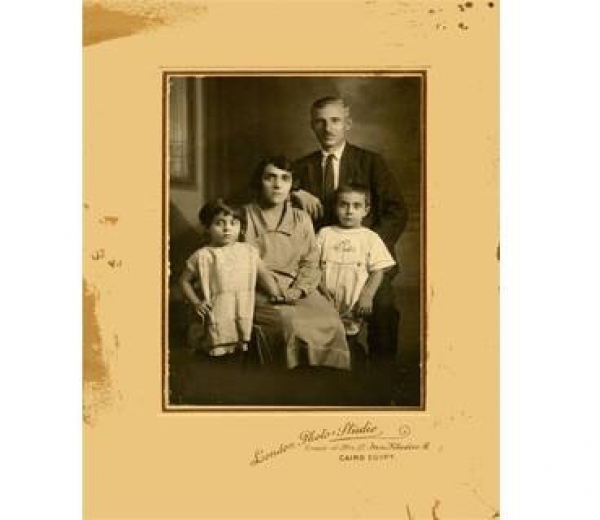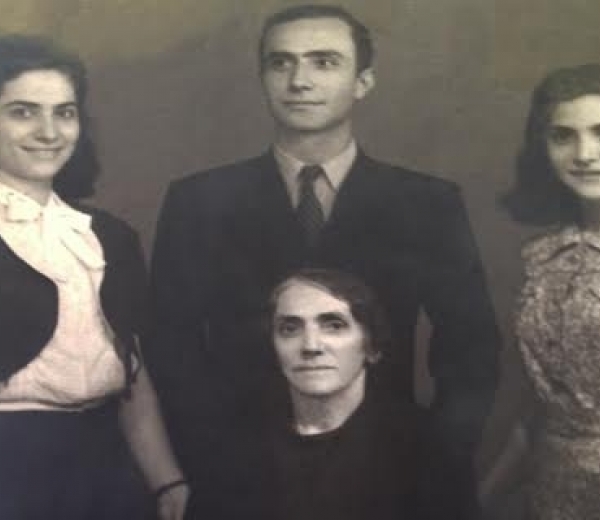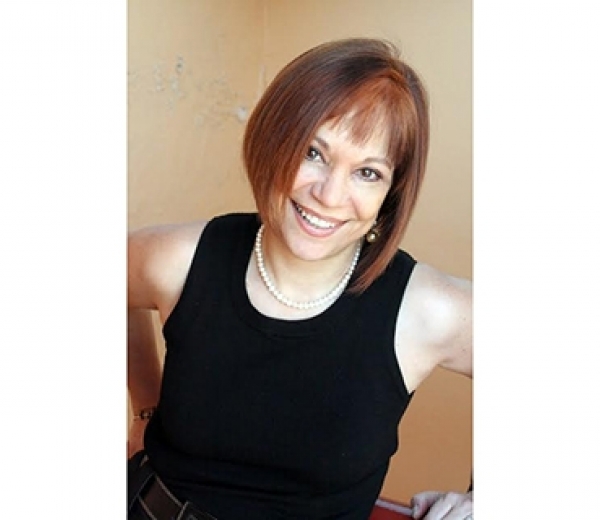Hagop, Akribas (Varoujan) and Kevork Ekserdjian
|
“Gessaria is a cherished name for me, since my mother Arminé Basmadjian’s parents were also from there. My dream is to visit Gessaria one day. I do not know what I will find there, but at least I’ll look at it with the eyes of my departed kin and will live that sacred encounter in their place,” says Nora.
Goussineh and Hagop
Goussineh Gemidjian and Hagop Basmadjian from Kayseri are the parents of Nora Armani’s mother, Arminé Basmadjian.
Father Ghevont Gemidjian, a renowned and respected priest is grandmother Goussineh’s father and Nora’s great-grandfather. Father Ghevont and his wife had four daughters, all born in Kayseri. Goussineh, born in 1890, was their eldest daughter. In 1915 she was already 25 years old. Her sisters were Azniv, Hranoush and Berjanoush.
The youngest daughter, Berjanoush, was ten years old in 1915, while Goussineh was already married to Hagop Basmadjian, a teacher, and had a new born baby, Vahram.
“Sometimes it seems just unbelievable that they went through all these hardships and were able to muster enough strength and courage to continue living. All my relatives who were born in Egypt could have been born on their lands in Kayseri. Instead, we were all sentenced to exile,” Nora says.
Grandmother Goussineh would often recall their home in Gessaria. She used to tell Nora that every May, the family went up to the mountains to their summerhouse and stayed there until September. She recounted details about their basement, where they hung up basturma (cured pastrami-like meat) to dry and kept plenty of dried fruits and other preserves.
In 1915 the Turks hanged Father Ghevont along with other priests and intellectuals. The family was forced into exile. Goussineh and Hagop were separated from each other. The priest’s wife, her four daughters, and her grandson – Goussineh’s one-year-old Vahram – became refugees. Vahram died during the deportations. Father Ghevont’s wife died as well.
“My grandmother considered their survival a miracle. They wandered the roads of exile for three years, crossed the Deir ez-Zor desert and in 1918 they finally reached Aleppo. My grandmother used to tell a story, somewhat like a vision, where she truly believed God helped her through the incredibly difficult journey,” says Nora, adding that she tells this story in one of her solo shows.
“At some point, as their caravan is passing by the Euphrates River, they are told by the gendarmes that whoever wanted to drink, could walk up to the river. Everybody rushes to the river. Feeble and very frail, my grandmother is so exhausted she can’t run, and she feels she is going to faint. Suddenly, she feels water being poured on her face. She opens her eyes and sees someone dressed in white standing by her, pouring water on her pale face. She cups her hands to hold the water. When she drinks enough and regains consciousness, she raises her head to thank her savior, but there is no one there. It seems to have been an apparition… But my grandmother says her lips were wet and her thirst was quenched. What was that, a miracle from God? My grandmother Goussineh often recalled that incident and believed that they survived the death marches through God’s help,” Nora recounts.
